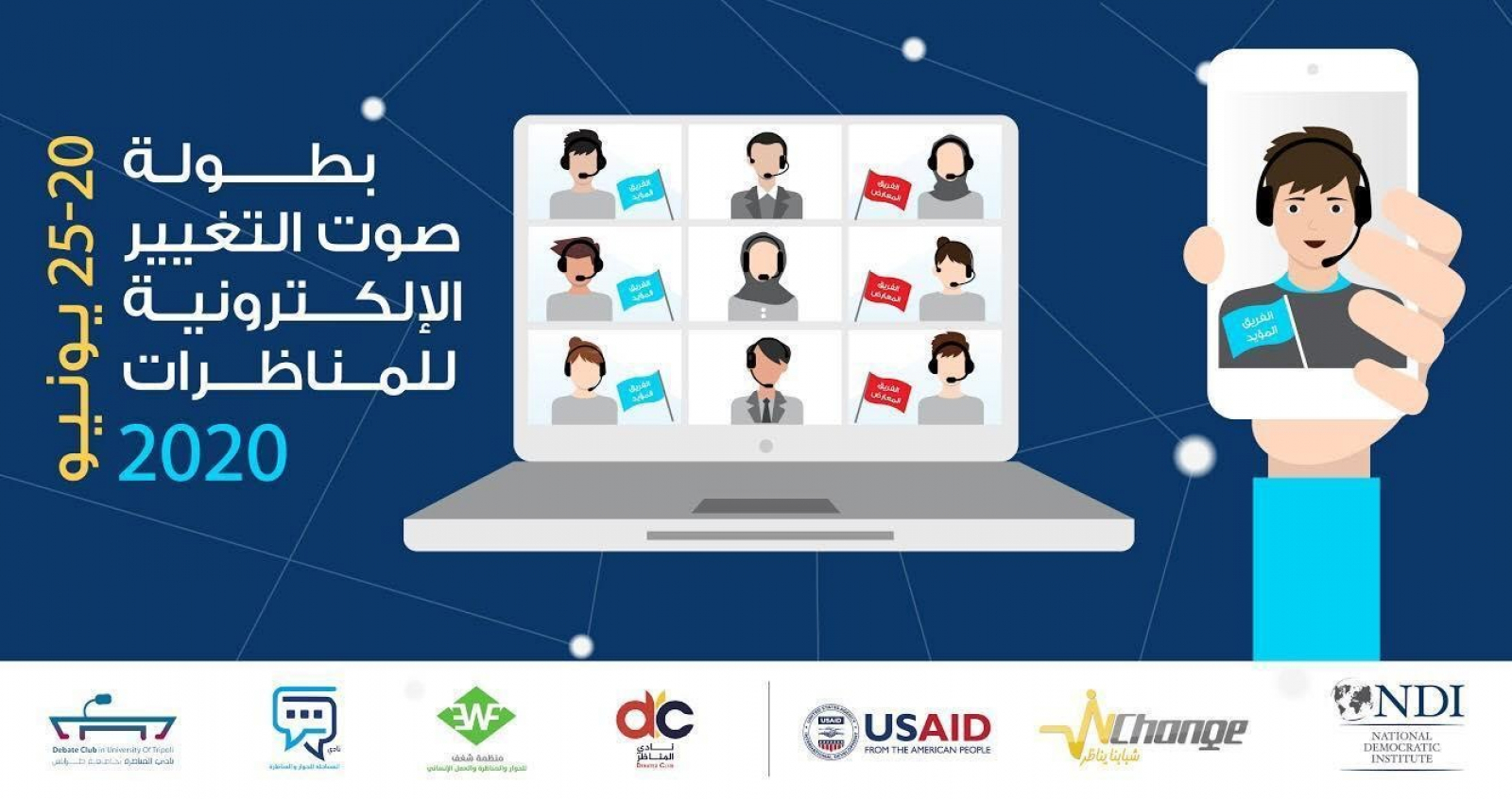
SHARE
From June 20-25, in cooperation with its four partner debate clubs and the participation of more than 60 young debaters, the National Democratic Institute (NDI) held the latest event in its Voice of Change—Youth Debates program: a virtual debate tournament. Despite substantial challenges, including power cuts and issues with internet accessibility and connectivity across the country, 16 teams (four from each club) participated in the single-elimination tournament.
NDI launched the Voice of Change program in the summer of 2019, partnering with four debate clubs in the west and south of Libya to provide training on critical thinking, communication, research, teamwork, and other crucial skills for more than 500 young people. NDI’s partners on the Voice of Change program are: AlMusajala, located in Jufra; Shaghaf, located in Sabha; the Debate Club of the University of Tripoli, located in Tripoli; and the Debater Club, located in Zawiya. NDI provided a training-of-trainers to key members of each club and coached them through a series of educational briefings for students associated with universities in their regions.
“My participation has been a unique experience in my life, through which I have gained self-respect and have developed myself. I have learned the spirit of teamwork. With argumentation and evidence, we can speak our minds,” said one debater from Jufra about his time in the program.
Prior to the outbreak of Covid-19, the clubs had been preparing to participate in a national tournament in Tripoli, originally scheduled for early June. Each region had held a qualifying tournament to select two representatives to compete for the national title. Once the restrictions inherent to the coronavirus pandemic became evident, NDI and its partners adjusted the program to fit virtual platforms and began holding debates online. Clubs posted videos of the debates on their Facebook pages, allowing other club members and the public to watch and comment on the proceedings.
libyafeature2.png

The Virtual Debate Tournament proceeded on schedule, despite significant electricity cuts across the country. At one point, debates had to be postponed due to a telecommunications blackout in the south of Libya that lasted for several days. Debaters went to great lengths to find solutions and participate in the competition. Groups went to hospitals and other municipal buildings to use their internet and power. One participant had her father drive her across town during a debate, searching for a stable connection over mobile data.
image2.png

The final debate, between two teams from the University of Tripoli, was held on schedule on the evening of June 25. The topic of the debate was whether a national referendum could unite the country and solve the ongoing political crisis. In a split 3-2 decision of the five judges, the affirmative team of two women and one man secured the victory. They argued that a referendum was the only way to take power from actors who have been unsuccessful in uniting the country and give it back to the people.
The two semi-final debates and the final were live-streamed on partners’ Facebook pages. In one week, the final debate has been viewed more than 40,000 times. Clubs posted videos of the preceding 12 debates.
Participants, partners and NDI are looking forward to resuming in-person activities, including the national championship, once conditions allow. Until then, the Voice of Change program continues, with regular weekly debates and a forthcoming, second virtual debate tournament later in the summer. In the fall, a new class of debaters will begin their training. NDI is actively considering expanding the program to new areas, inviting new partners to join the coalition, united by a common goal: providing opportunities for young people to discuss the future of their nation, and equipping them with the skills to participate in that future themselves.
NDI's engagement in Libya is implemented with support from the United States Agency for International Development (USAID) through the Consortium for Elections and Political Process Strengthening (CEPPS).
Author: John Maisner is a Resident Senior Program Manager with the MENA Team at NDI.


